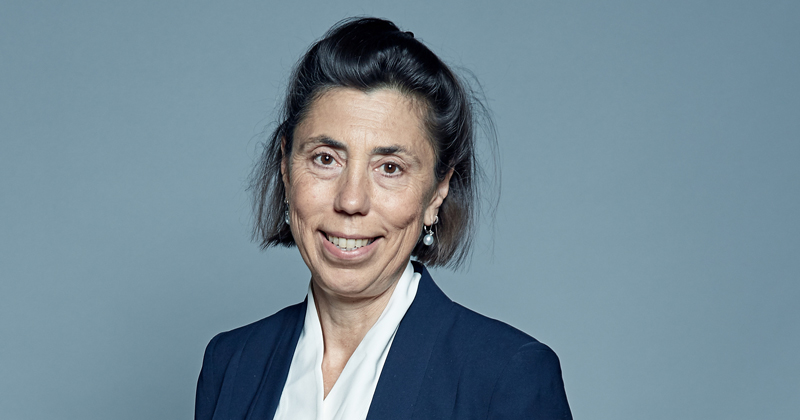The new academies minister has urged strong maintained schools to “share the love” by launching multi-academy trusts.
Baroness Barran went on a charm offensive at the Schools and Academies Show in Birmingham this week, telling local authority heads and governors: “We need you”.
In a later interview with Schools Week, her first since becoming academies minister in September, she also revealed that the government is investigating different trust operating models to see which produce the best outcomes.
‘Evolution’ of DfE strategy
Barran, a former investment banker and charity leader, spoke of “maximising the pounds in the classroom” through economies of scale, and the “trust dividend”.
She said the sector should also “take comfort” that policy under education secretary Nadhim Zahawi would be “evidence-driven”.
She was “skipping with delight” to find common ground with the fellow ex-business leader’s approach, as her own working background was “heavily grounded in evidence”.
The Department for Education was carrying out financial analysis “right now” to find which operating models delivered best outcomes. This evidence focus marked an “evolution of the strategy”.
When asked if she would publish the findings, Barran said: “If we can be transparent, we will be.”
Yet she repeatedly stressed the DfE’s continued vision of all schools joining MATs, dampening recent speculation Zahawi may be less committed to his predecessor’s agenda.
Ministers change their tune on councils
But she added: “One of the unanswered questions is how we unlock some of the capacity within the maintained sector where they’re delivering a great education. We would like them to share the love.”
The department wants strong maintained schools to share their great assets and expertise more widely, she said.
“There’s a real opportunity for them, not only to do good in their community, but also the opportunities it offers their staff.”
It marks a change of rhetoric towards councils from the government as it attempts to revive the academies drive.
At present, 37 per cent of primary schools are academies, compared with 78 per cent of secondaries. More than half of pupils now attend an academy.
But government survey figures released this week show only 13 per cent of local authority primaries and 22 per cent of secondaries were considering converting. Most fear a loss of autonomy.
Barran said the government had to “move the needle” on the 600,000 children in schools with ‘inadequate’ or repeat ‘requires improvement’ ratings. She said her office walls were plastered with national maps showing academisation coldspots and failing schools “to remind me every morning”.
The evidence showed strong trusts could transform such schools. But the minister acknowledged some areas lacked trust capacity, even if other MAT leaders were “chomping at the bit” to expand.
Asked whether councils running their own trusts could feature in a white paper, she said the government wanted schools in “strong families”, but did not have hard and fast rules or ideas. She declined to rule it out, and said she could not pre-empt white paper announcements.
Accountability but not ‘Soviet’-style
Her speech acknowledged that “not all trusts are strong”, with a need to do more, despite rigorous scrutiny and robust intervention. But she said it was not a “Soviet model” or micro-management, with the aim to move to a “consistent, transparent and proportionate” framework.
“We want to take a careful look at how we hold trusts to account and ensure they deliver value for public money.”
Her speech further pledged that trusts’ role in communities would not only continue but be “strengthened”.
Asked to elaborate, she said the DfE was “not going to tell them how to do it”, but wanted to learn from best practice.
When asked how big she would be comfortable with trusts growing, Barran said: “Our north star has to be what delivers the best outcomes for children, rather than a set idea about £50 million or £100 million turnover being too big”.
















Sharing the ‘love’ won’t make up for ten years of the DfE constantly knocking LAs and non-academy schools. At the same time, schools have twigged that the long-promised ‘freedom’ is an illusion. The only schools with real autonomy are stand-alone trusts and LA schools.
The Baroness implies that LA schools can only share their expertise by becoming part of a MAT. But this can actually hinder co-operation as MATs are in competition with each other. If she’s really concerned in schools co-operating then she should also encourage other types of collaboration such as loose federations between schools regardless of whether they’re academies or not.